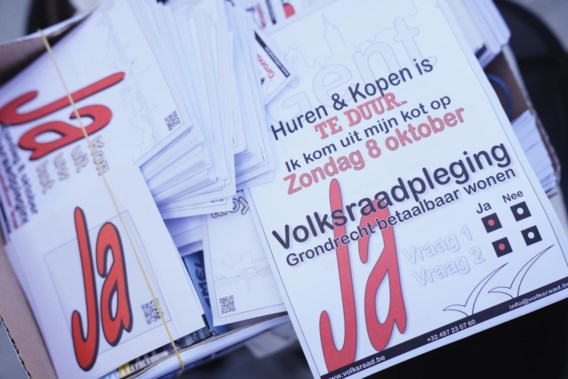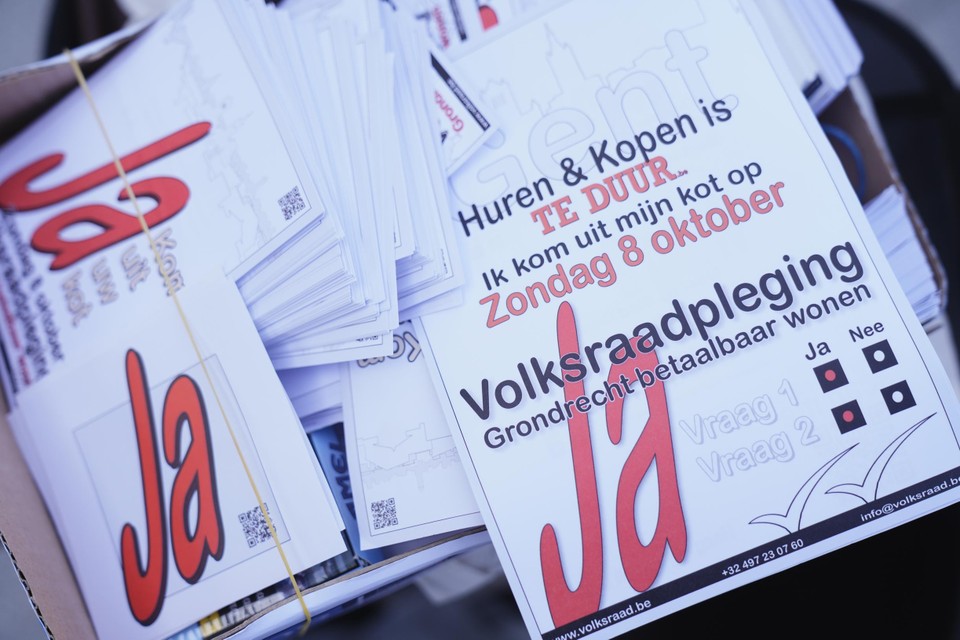Ghent
Every resident of Ghent normally received a ballot in the mail. — © fvv
In recent weeks, every resident of Ghent has received an invitation to participate in today’s referendum. The issue: is living in Ghent too expensive and should the city intervene? There are two questions that must be answered with yes or no.
What will the turnout show on Sunday? That the referendum is a fantastic instrument for citizen participation in our democratic constitutional state? Or the reverse? Because of its scale alone, Ghent is a litmus test for non-binding referendums. All residents over the age of 16, which is more than 220,000, are allowed to speak out about affordable housing. 58 voting locations have been opened since 8 a.m., but voting is not mandatory. It will probably be clear in the morning whether the turnout is higher than the required 10 percent of the population.
A cautious trend seems to be emerging: in polling stations in the center and in the densely populated outskirts around the R40, such as Dampoort and Muide, a turnout of 10 percent seems within reach. But in the polling stations on the outskirts of the city, such as in Mariakerke and Drongen, it looks like the 10 percent will not be achieved. As a reminder: only when 26,700 Ghent residents show up to vote will the votes be counted.
The action group Too Duur forced the referendum by collecting more than 27,000 signatures. The activists and the Ghent city council have put together two questions that are presented to all Ghent residents over the age of 16. On the one hand, they can ask to no longer privatize municipal public real estate. On the other hand, the creation of a ‘bank of public lands’ is being discussed to achieve 40 percent social housing.
‘Living as profit’
Keeping public real estate and increasing the number of social housing is a response to what activists call a neoliberal privatization policy. They also criticize the ‘living as profit’ model. Ghent has been struggling for years with a major shortage of social housing and a shortage on the housing market in general.
According to a recent study, an additional 20,000 households will be looking for a home in the city by 2040. This means that the shortage will rise to almost 6,000 homes. To increase the share of social housing to 16 percent by 2040, there is a need for 5,800 additional social rental homes on top of those already planned.
All parties in the Ghent city council, except the N-VA, support the idea of setting up a land bank, but a general ban on the sale of public real estate is not taken seriously politically. The city has plots or buildings in its heritage here and there that are no longer useful.

